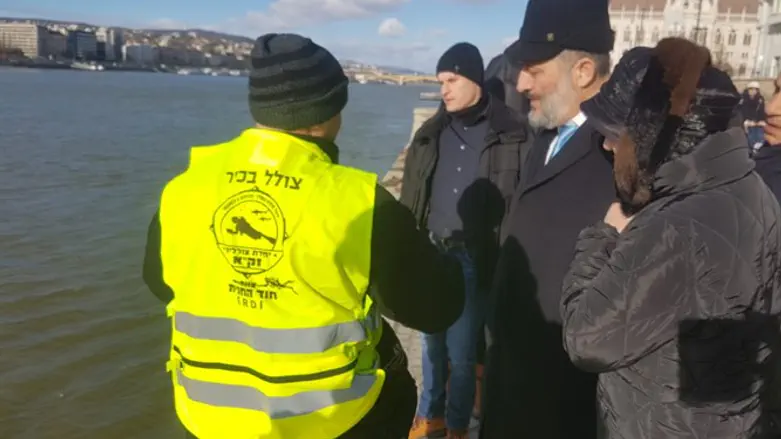
Not everyone is happy with the recent operation to locate and retrieve Holocaust victims’ bones from the River Danube in Budapest.
According to Kikar Hashabbat, Hungary's Reform community released a statement on Thursday saying that they oppose the effort to find the bones of Jews killed in the Holocaust.
"The disturbance of the resting place of the dead is a complex and sensitive issue. The search and investigation of these bones is unnecessary, and it also damages the dignity and rest of the dead, Jews and non-Jews alike, and also contradicts Jewish law," read a statement released by local Reform leaders.
They also claimed that it is impossible to know that these are indeed the bones of Jews and not the victims of other religions. As such, the Reform community sent a written request to the Israeli and Hungarian interior ministers to stop the search immediately, "since these searches are not justified."
Rabbi Slomo Koves, who heads the Union of Orthodox Jewish Communities in Hungary, blasted the efforts by the Reform leaders to scuttle the retrieval effort. "I am filled with pain in the face of the fact that a Jewish community in Hungary, out of extraneous considerations and Jewish ostensibility, is so contemptuous of the bones of those who perished in the Holocaust," he said.
"The halachic position is clear: everything must be done in order to bring the bones of a person to a proper burial. In this matter, the position of the halakhah is unequivocal and any other statement is a sad distortion."
Volunteers for ZAKA, an Orthodox Jewish group that is based in Israel and provides emergency services as well as collection of human remains for burial, operated the sonar from the river banks on Tuesday. The team operating the sonar will be back next month for another scan.
In 2011, human remains were discovered during construction work on a bridge overlooking the Danube. DNA tests run on the bones in August 2015 found that at least nine of the 15 samples were Ashkenazi Jews from Europe and that six others could also be.
In 1944-1945, Hungarian Nazi-collaborators from the Arrow Cross shot thousands of Jews on the banks of the Danube.
These murders are at the heart of an ongoing and polarizing debate in Hungary about how government-led and other commemoration efforts should address the issue of complicity. The Mazsihisz Jewish federation has accused the government of whitewashing this complicity, though EMIH has disputed this.
“Whether this is controversial or not is really not an issue,” Koves said of his group’s efforts to bring to burial Arrow Cross victims. “The only thing that matters is the major mitzvah of bringing the victims to burial.” He said the government was helpful in obtaining permits for the searches.